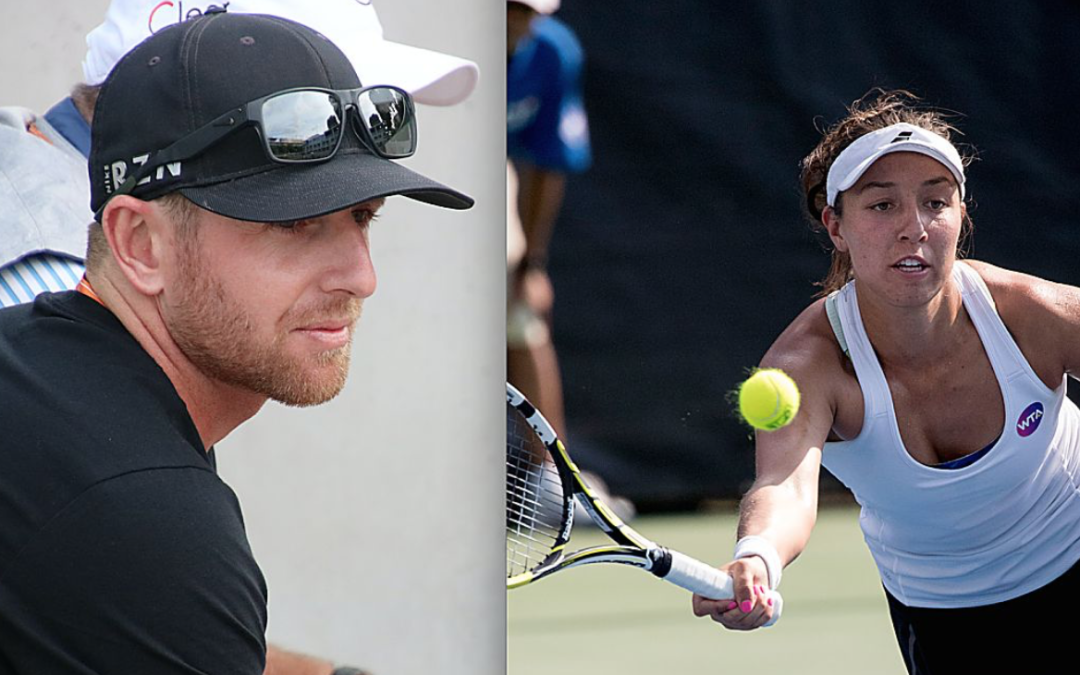Jesse Levine has always been a competitor. As a professional tennis player, he rose to a career-high singles ranking of No. 69 in the world and defeated a number of top-ranked players throughout his career. Now a retired athlete, Levine has discovered that he may be even more competitive as a coach.
Levine’s knack for tennis was clear from an early age as he won a number of significant titles as a junior, including the Wimbledon boy’s doubles championship in 2005. Opting to play collegiately at the University of Florida, he earned the No. 1 singles spot for the Gators, only losing one match during his time in college.
After just one year at UF, Levine decided to forgo the remainder of his eligibility to turn professional, due in large part to his success as a collegiate player. “I felt I could always go back to school. You only have one shot at playing professionally, but you can always go back to school. That being said, I think college tennis is amazing and everyone should experience it for at least a year,” he said.
At first, Levine felt pressure to perform on the Tour as a result of his decision to leave college early. However, he quickly realized that playing professionally is much more of a deliberate process. Tennis was no longer a race, instead it became a marathon.
Levine played professionally for nine years before elbow surgery caused his career to come to a premature end. He then began coaching a junior program at a club in Boca Raton, Florida. In the midst of his first coaching role, he received a call from his agent asking if he would like to work with Madison Keys.
“When I got the call, I decided I needed to give this a shot because I would always be able to go back to coaching at a country club,” Levine reminisced. “It’s not every day that you have the opportunity to work with a top-10 player.”
After working with Madison Keys for about a year before amicably parting ways, Levine began receiving requests from junior players for private coaching sessions. He worked with juniors for a period of time until receiving a phone call from Jessica Pegula, who was looking for a new coach to work with following a return from hip surgery.
The pair opted to go through a trial period and instantly hit it off in their player-coach relationship. Levine agreed to begin working with Pegula, knowing the vast amount of potential she had as a player. Now, just two years later, she has vaulted from a world ranking in the 500s to No. 81.
As a former professional player, Levine is confident in his ability to relate to the situations Pegula encounters while on the court. “There have been a lot of instances where I’ve been in her shoes. That allows me to encourage certain things to keep happening or stop the negatives situations from occurring. Since I’ve been in those shoes before, I think that helps me be a better coach,” he explained.
Throughout his time as a coach, Levine has also learned to adjust his style to the player he is currently working with. “I’m not going to coach Jessica the same way I coached Madison. I’ve gotten better each year at adapting to the player I’m with. I think that’s extremely important. It helps you know when to push them, when to hold back, when to really put your foot down, or give them a pat on the back,” he said.
Above all, Levine has learned that he is even more fiercely competitive as a coach than he was as a player. “Competition is something I truly miss about playing, but when you’re coaching someone and traveling with them week in and week out to tournaments, you still get a bit of those competitive juices flowing. When Jessica wins, I feel like I win too. We win as a team,” he explained.
Perhaps this competitiveness is what makes Levine and Pegula such a great match. Pegula thrives on high-stakes competition and pressure. According to Levine, she elevates her game to a different level when she is facing a top-opponent. Rather than succumbing to the pressure, she excels.
An area that Levine has worked on with Pegula is getting up for the matches where there are only 20 to 30 people present in the stands. However, he stresses the importance of playing tournaments regularly in order to prepare for those high-stakes moments.
“You can’t simulate a competitive environment. That’s the thing about tennis, you can practice match situations day in and day out, but it’s never going to be the same as a real match,” said Levine.
Finally, Levine urges other coaches to learn how to accurately read their players so that they can know when to push them in the correct moments. “Sometimes you can be both a coach and psychologist at the same time. Anyone can get through a match when things are going well, but when you can get through a match when things aren’t going your way, that’s the true accomplishment,” he said.

